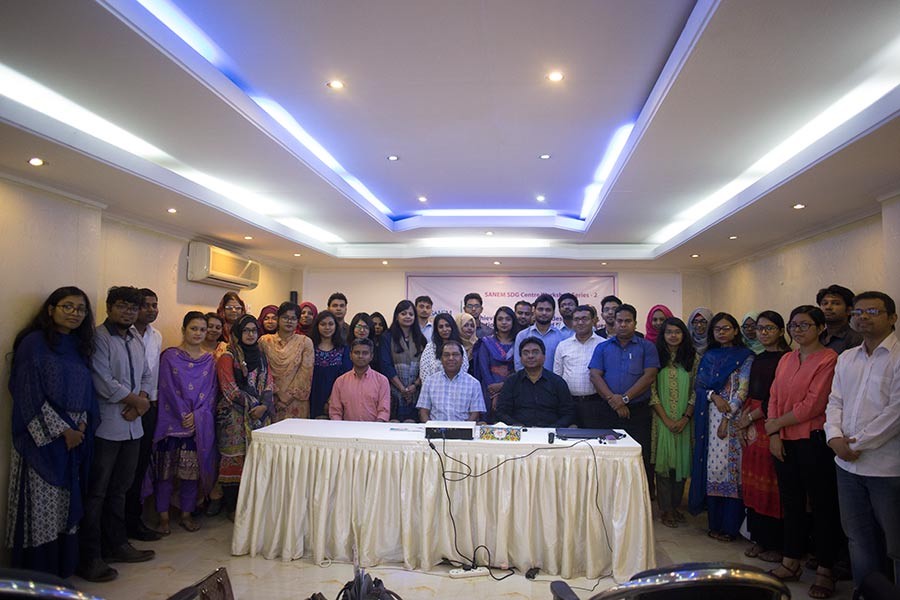
Published :
Updated :

South Asian Network on Economic Modelling (SANEM) SDG Centre held its second workshop on Saturday (November 02, 2019) at a hotel in the capital.
The workshop had three sessions in total, conducted sequentially by Zubayer Hossen, research economist, SANEM and co-ordinator, SANEM SDG Centre, Dr Selim Raihan, professor, University of Dhaka and executive director, SANEM and Dr Bazlul Haque Khondker, professor, University of Dhaka and chairman, SANEM, says a press release.
The first session titled “Setting the priorities for achieving SDGs in Bangladesh” began with a presentation by Zubayer Hossen. He first gave a brief overview on the SDGs (Sustainable Development Goals).
He said, “Slow progress on SDG 17 threatens all goal achievement. Our own resources are the most crucial, but we need expertise and financial support from abroad as well.” He identified some of the goals needed to prioritise to progress and discuss some policy implications about how these goals can be prioritised, which include multi stakeholders partnership, policy integration and most importantly, resource mobilisation. The session ended with an interactive question answer session.
The second session on “Institutional challenges in implementing SDGs in Bangladesh” was conducted by Dr Selim Raihan.
He started the discussion by briefly explaining the roles of institutions. “Bangladesh’s tax-GDP (gross domestic product) ratio of social safety, health and education has declined over the years. This shows how ineffective government machineries are in terms of reaching the SDGs”, he said. He explained the ideas of informal institutions and the assessment framework developed by Mushtaq Khan. He also explained the framework developed by Kunal Sen, Lant Pritchett and Eric Wrecker. “Bangladesh needs a significant level of institutional development for the transition towards a higher stage of development from the lower stage that persists,” he said.
The third and last session of the workshop titled “Revisiting the SDGs financing framework for Bangladesh” was conducted by Dr Bazlul Haque Khondker. “Investment is a necessary condition for realising the SDGs, but not a sufficient one,” he said. He discussed about the SDG Financing Strategy report done by SANEM. He briefly discussed about additional costs associated with SDG financing. He showed a compact summary of the costing exercise and financing options. “This will take approximately 20 per cent of the accumulated GDP of 13 years starting from 2017 to 2030, and that is huge. 85 per cent of the resources have to come from the domestic sources,” he said.
He discussed three broad annexes of the costing and financing for SDG, where he also talked about the methodology. He also discussed about the roles of public sector which include bond financing, deregulation of energy prices, enhanced tax efforts etc. “Bangladesh cannot achieve the level of financing for SDG because of the crisis regarding resource mobilisation. In terms of financing options, the role of private sector is crucial,” said Dr Khondker.
The conference came to an end with the participants receiving their certificates from Professor Dr Bazlul Haque Khondker.


 For all latest news, follow The Financial Express Google News channel.
For all latest news, follow The Financial Express Google News channel.